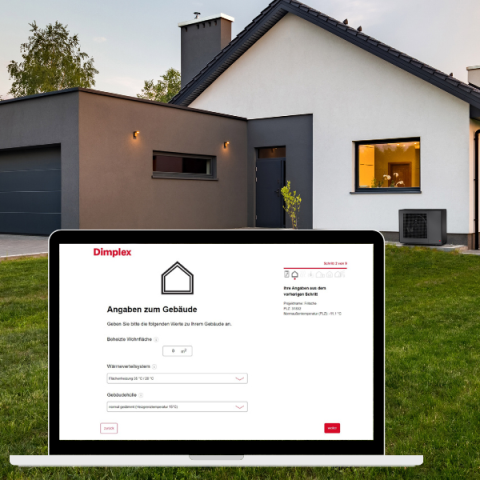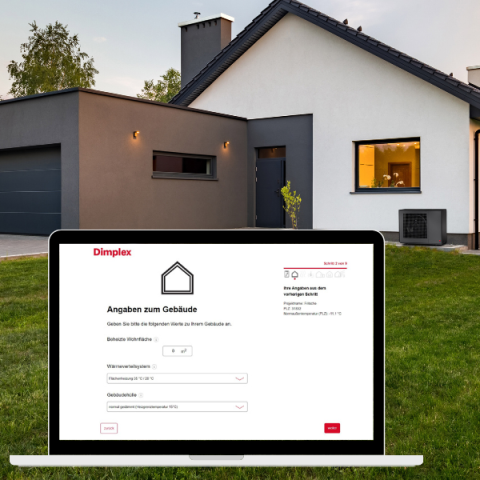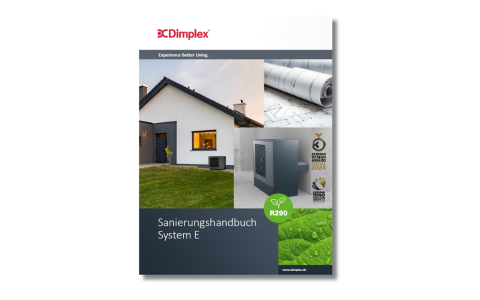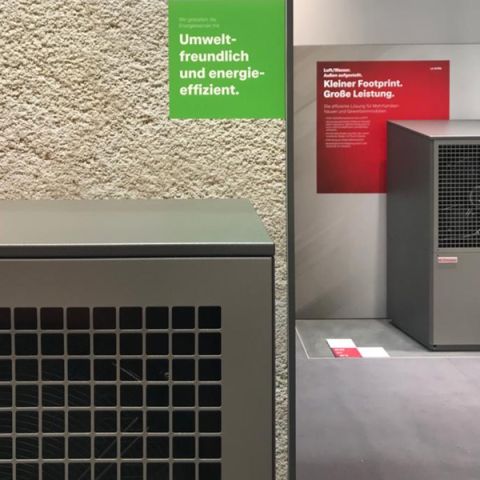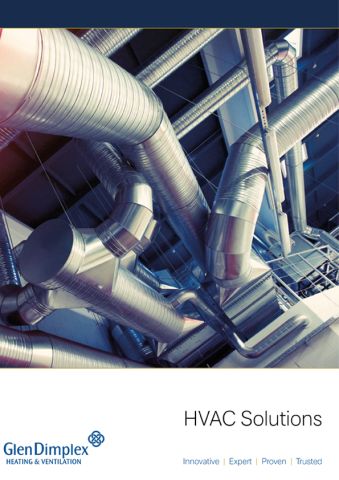Kulmbach heat pump serves as a model nationwide
There are many myths surrounding the topic of heat pumps. The German Energy Agency (dena) wants to dispel these myths once and for all during “Heat Pump Week” at the beginning of November. A heat pump from Kulmbach will serve as a prime example. It belongs to the Röder family and has been heating their 90-year-old house in Thurnauer Strasse for two years. As part of the campaign week, Röder's refurbishment example will be on display nationwide - at exhibition locations from Bad Segeberg to Freiburg. Even dena was surprised by the high efficiency of his heat pump.
KULMBACH The sight that presents itself to passers-by and pedestrians in front of the semi-detached house in Thurnauer Strasse in mid-October is anything but ordinary: a large tripod stands in the driveway, a photographer crouches in the front garden behind the bushes - camera at the ready - while his assistant stretches a shiny silver folding reflector next to him. However, the two of them do not have a model or a celebrity in their sights, but rather an inconspicuous gray box at the front of the house. On this day, the agency team from Leipzig has been commissioned to showcase the Röders' heat pump.
This is because the German Energy Agency (dena) has selected the Kulmbach renovation example to provide information at an exhibition at over 75 venues as part of its Germany-wide “Heat Pump Week” event.
Kulmbach is a “heat pump stronghold”
There will also be a number of events in Kulmbach during the campaign week, organized by the Energy Agency of Northern Bavaria (see info box). After all, the district is considered a “heat pump stronghold” - several heat pump manufacturers and suppliers are based here. The public debate surrounding the Heating Act has recently caused them a great deal of trouble: the order situation has slumped rapidly due to the great uncertainty surrounding heat pumps, and a recovery is nowhere in sight. This is precisely where dena wants to come in and raise awareness with its campaign week. After all, heat pumps are a key component of the energy transition if we are to achieve our climate targets and become independent of fossil fuels.
The example of the Röder family is impressive proof that many reservations about heat pumps are actually unfounded. The Röder couple live in a 100 square meter semi-detached house from the 1930s, which - apart from new windows - is still largely in its original condition. When the old gas heating system had to be replaced two years ago, the Röders looked for an alternative. "We want to heat sustainably and efficiently in the future. That's why it quickly became clear that we would install a heat pump," explains Heiko Röder. With the System E heat pump from Dimplex, the native Kulmbacher opted for a model that - just like him - comes from Kulmbach and is particularly suitable for renovation. This is because the Röders continue to heat with conventional radiators, for which the heat pump has to provide a correspondingly higher flow temperature.
Heating replacement in just three days
According to Röder, the work involved in installing the new heating system was absolutely limited. Only two core drillings through the house wall were necessary to lead the pipes to the back of the building. In the house, the old gas heating system was removed and a new circulation pump installed, the pipework in the boiler room was brought up to date, a new 200-liter buffer tank was connected and a separate fuse box was installed for the electrical connection. “Commissioning, including the electrical work, only took five hours, and the entire heating system was replaced within three days,” he recalls.
Röder is only too familiar with the reservations that some homeowners have about a heat pump: "At first, I was skeptical myself as to whether a heat pump would even be an option for my house - after all, it was built in 1930 and had no insulation and old windows. After we replaced the windows, we opted for the heat pump - a decision that turned out to be absolutely positive. The feared noise? There is none, the concerns were unfounded!"
Climate-friendly and efficient
Röder hopes that he can use his example to help convince homeowners of this climate-friendly heating method. After all, it has also more than paid off for him in terms of costs. Despite the supposedly difficult conditions - hardly any renovated old buildings without underfloor heating - Röder's heat pump now works highly efficiently thanks to optimized controller settings: as the flow temperature could be gradually lowered, it now achieves an annual coefficient of performance of almost 4.5. This means that the heating system gains an average of 4.5 units of heat per year from one unit of energy used - an outstanding value that even surprised dena.
The dena photo shoot at his home was certainly an exciting experience and a lot of fun, says Röder. But ultimately, the campaign is all about one thing for him: "I want to show people: If a heat pump works in my home, then it's definitely an option for many others too."
The week of the heat pump
Heat Pump Week is a Germany-wide week of events taking place in all federal states and over 75 districts from November 4 to 10, 2024. Visitors can find out about heat pumps, their installation and funding opportunities in presentations, at an exhibition and in discussions with regional experts, both on site and online. In Kulmbach, a large information day will be held in the Mönchshofhalle on Saturday, November 9, from 12 noon to 6 pm as the central event for the whole of Upper Franconia. Here, visitors will learn first-hand why most buildings are actually suitable for heating with heat pumps, what needs to be considered when making the switch and what subsidies are available from the federal government. Admission to the event is free of charge.
Contact Dimplex:
Monika Holhut, phone: +49 9221 709 8199, e-mail: [email protected]
